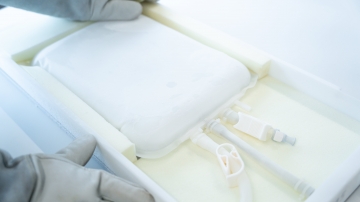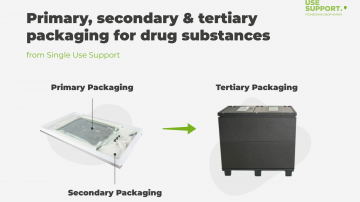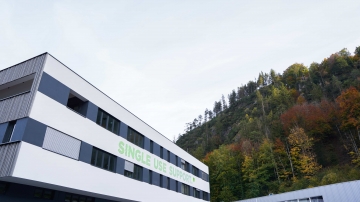Mission completed – and now? What to do with the RoSS® Shell after use
Table of contents
ShowOnce Single Use Support's RoSS shells, the secondary packaging containers for single use bags, have fulfilled their duty and protected valuable, possibly life-saving biopharmaceuticals on their way from the manufacturer’s site to where they have been expected, the question is: What now? While the substance they had previously contained continues its journey in bioproduction or fill/finish sites, the bioprocess containers have seemingly reached their final stop. But have they, really?
Indeed, there are single-use components, such as the bag, that would not be re-used and therefore disposed. Nevertheless, the shell's journey is not quite over: But instead of concentrating on the safe transport of biological products, the focus shifts towards minimizing the product’s impact on the environment. The single-use RoSS shell can be recycled easily and in an adequate manner, whereas there are also multi-use options. Learn about what biomanufacturers can do with used RoSS shells in the following.
Single-Use: How to recycle RoSS® shells?
RoSS® shells, the protective storage and shipping containers for single use bags and manufactured from Single Use Support, are made from 3 different materials:
- Stainless-steel lids
- PE panels
- 3D foam
It is not only easy to separate into its base materials, but also easy to recycle. Single Use Support encourages its customers to talk to their local waste management contact on how to recycle their single-use shells. Alternatively, it is also possible to send RoSS® Shells back to Single Use Support for proper recycling.
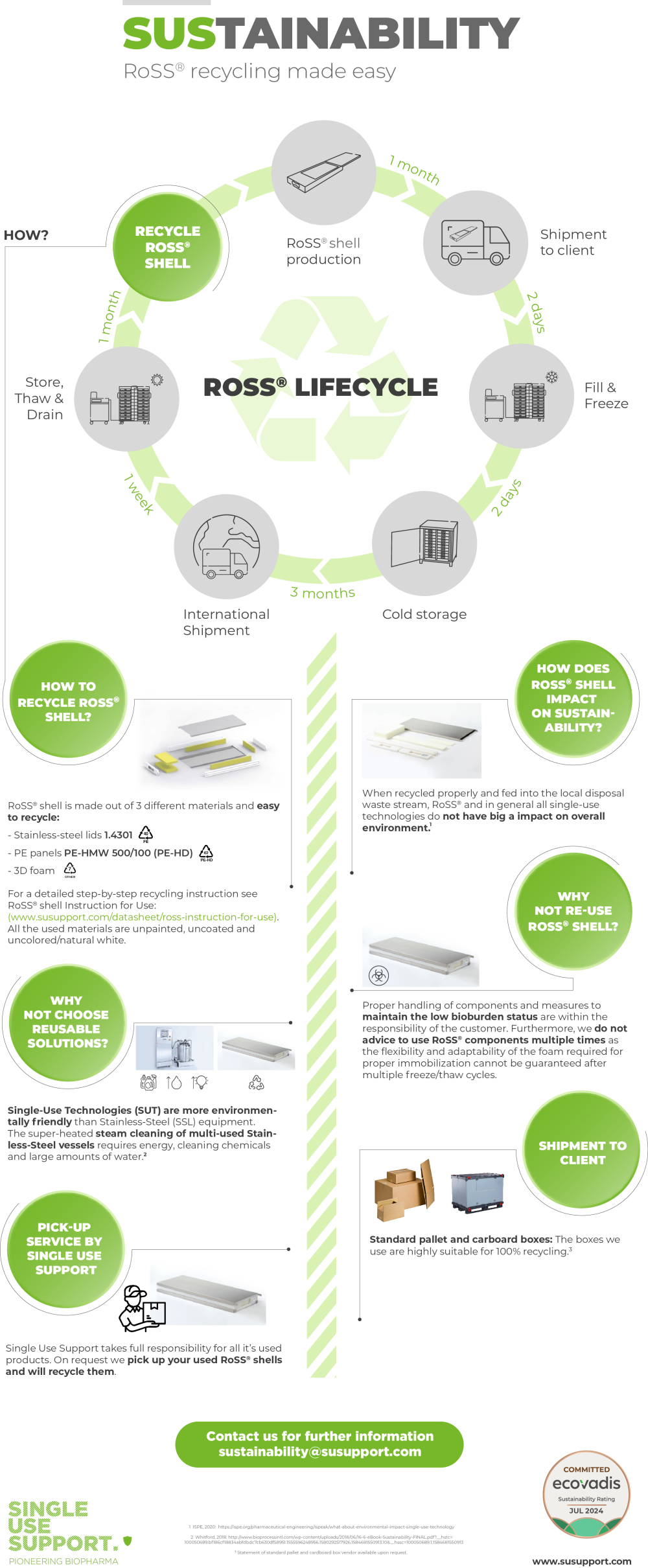
As illustrated above, the journey of RoSS containers does not end once the previously contained substance has been removed. On the contrary: By adequately recycling the bioprocess containers after usage, their impact on the environment can be minimized. This is a key aspect of enforcing sustainability in the biopharma industry and a major aspiration of ours in the development of innovative fluid management solutions.
Multi-Use: How to refurbish RoSS® shells?
After weeks & months of usage under different conditions and locations Single Use Support does not advice to refurbish or use the single-use RoSS shell components multiple times as the flexibility and adaptability of the foam required for proper immobilization cannot be guaranteed after multiple freeze/thaw cycles. Simply because it is beyond Single Use Supports scope of influence to guarantee sterility of RoSS components. Proper handling of components and measures to maintain the low bioburden status are within the responsibility of the biomanufacturer.
However, the process solution provider has developped a multi-use RoSS shell and successfully implemented a refurbishment and reusability model for single-use systems: To enable secure cold chain transport between CMOs, Single Use Support provides a US-based vaccine innovation company based with cold chain trolleys equipped with reusable RoSS® shells accommodating single-use bags. Multiple trolleys circulate within closed CNC sterile environments, moving in a controlled loop between CMOs. Learn more about the reusable shell and how Single Use Support is helping biomanufacturers reduce their ecological footprint by providing innovative, multi-use solutions.
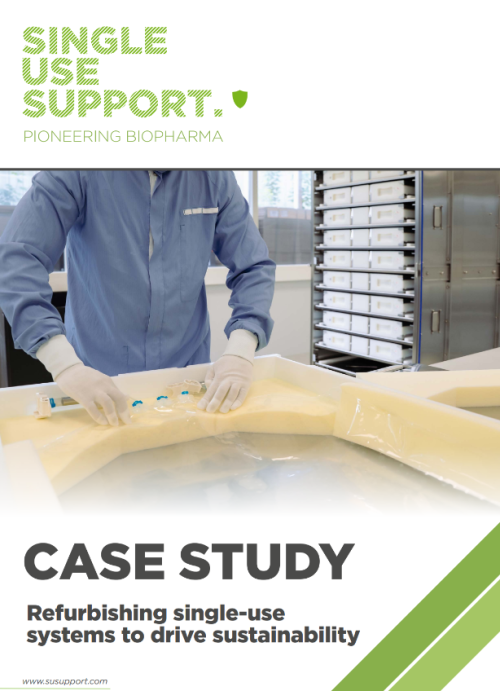
Case Study
Refurbishing single-use systems to drive sustainability
In collaboration with a US-based vaccine innovation company, Single Use Support has implemented a reusability model for single-use systems. To ensure secure cold chain transport between CMOs, multiple trolleys - each carrying reusable RoSS® shells accommodating large single-use bags - circulate within a closed, sterile, and controlled loop. Download our Case Study.


